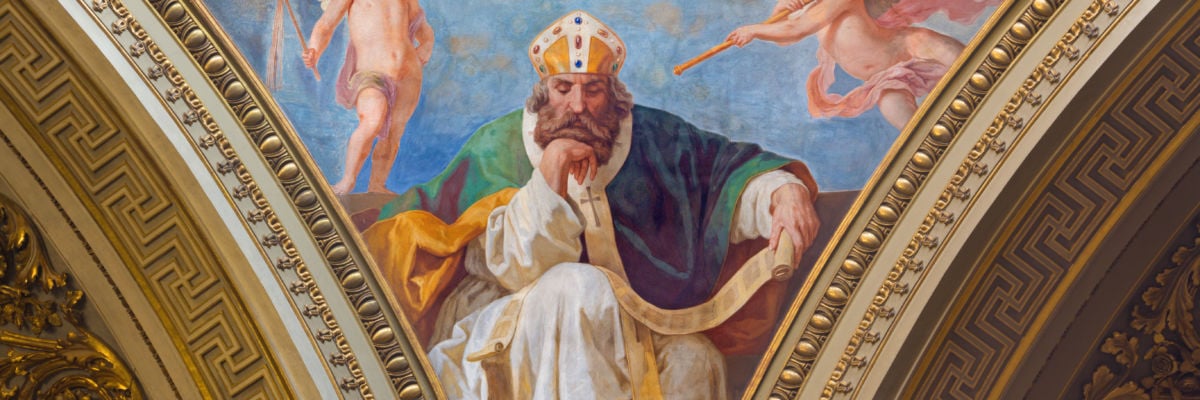
Question:
Answer:
The Fathers of the Church are so called because of their leadership in the early Church, especially in defending, expounding, and developing Catholic doctrines. For the first two centuries, most of these men were bishops, although in later years certain priests and deacons were also recognized as Fathers.
The list includes such notables as: Clement of Rome (d. A.D. 97), Ignatius (d. 110), Polycarp (d. 155), Justin Martyr (the Church’s first major lay apologist; d. 165), Irenaeus (d. 202), Cyprian (d. 258), Athanasius (d. 373), Basil (d. 379), Cyril of Jerusalem (d. 386), Ambrose (d. 397), John Chrysostom (d. 407), Jerome (d. 420), Augustine (d. 430), Cyril of Alexandria (d. 444), Pope Leo the Great (d. 461), and Pope Gregory the Great (d. 604).
The Church demands four major characteristics to be exhibited in the life and works of an early Church leader if he is to be considered a Father of the Church. These are antiquity, meaning that he lived before the eighth century (the death of St. John Damascene [cir. A.D. 750] is generally regarded as the close of the age of the Fathers); doctrinal orthodoxy; personal sanctity; and approval by the Church.
For more reading on the church fathers, see our encyclopedia entry.


